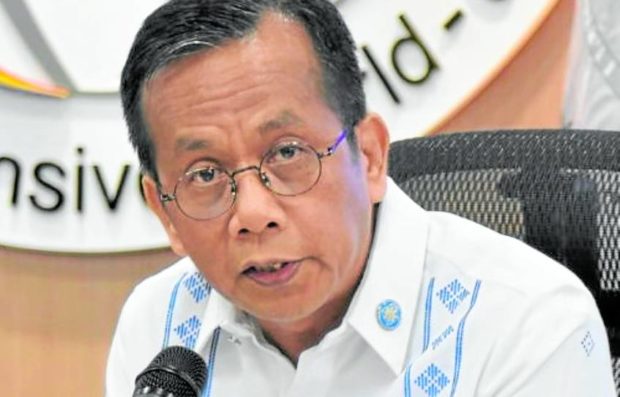Maharlika beneficial to PH development plan, says Neda chief
MANILA, Philippines — The passage of a law creating the Maharlika Investment Fund (MIF) will be beneficial to the implementation of the Marcos administration’s Philippine Development Plan for 2023-2028 as it can help finance the national government’s investment priorities, according to Economic Planning Secretary Arsenio Balisacan.
“We see the Maharlika as another vehicle for sources of financing for investments, just like the Public-Private Partnership scheme, official development assistance from other governments, and the national budget,” Balisacan said in a press briefing on Monday.
The head of the National Economic and Development Authority (Neda) noted that while the medium-term economic blueprint was not dependent on the existence of a sovereign wealth fund, money from the MIF would help ensure that the government could ramp up not only its investment in infrastructure, but even other development priorities as well.
“The more [sources of funding] we have, the better,” he said.
Asked if a delay or even a nonpassage of the MIF bill would affect the six-year economic plan, which was approved on Dec. 16, Balisacan said no, “but the earlier [a law is passed] the better, because it complements, it enhances the available vehicles of funding that we already have.”
Article continues after this advertisementName change
At the televised Laging Handa briefing on Monday, a Filipino-Canadian economist suggested more improvements to the MIF, including changing its name to make it “apolitical.”
Article continues after this advertisementMichael Batu, an assistant professor in the economics department at the University of the Fraser Valley in Abbotsford, British Columbia, Canada, said that while he thought Maharlika was a “good name,” other “politically neutral” labels should be considered by lawmakers.
“Why not [turn] the name ‘Maharlika’ into something apolitical,” Batu said, adding that “Maharlika” was associated by some people with the Marcoses.
The President’s late father propagated the use of the word “Maharlika” to promote patriotism during the martial law years, recalling his nom de guerre and the name of his supposed guerrilla unit during World War II that historians claimed did not exist.
“Why does it need to be neutral? Because it has inter-generational significance. This sovereign wealth fund will not just operate in our generation. We anticipate it will operate in the future, (during the days of) our children. In those times, will the Marcoses be still around? Because there is a tendency that in the future, whoever will take power will change the name,” he pointed out.
Batu suggested that the MIF be renamed “Philippine Strategic Investment Fund” which he said was “very neutral” and would “apply to several administrations, several [political] personalities in the future.”
Fine-tuning in Senate
Batu lauded “big improvements” in the House bill that have been added to the original measure filed last month, among them the layers of accountability to deter corruption, the exclusion of pension funds, and the inclusion of a provision on Islamic investments.
Aside from the name change, he said the Senate should subject the measure to “fine-tuning” to address further concerns on transparency and accountability.
He said the tenures of the members of the fund administrator were not defined, adding that term limits and other conditions should be stated in the law and not in its implementing rules.
Batu said he also wanted the limits and extent of the reporting requirement be delineated in the law as protection against corruption.
“We need to know that to eliminate doubts among our countrymen as to where the hard-earned money of the Filipinos went. So we can trace what we call fraudulent investments. It should be clear to us where the money went because we’ll see here if the investments were very risky. And what will happen there is if we know that it’s risky, there’s a chance that the fund will lose money. So it has to be clear to us and the auditors where the money went,” he said.
Tap more investors
A private think tank suggested that a “straightforward” way to address governance concerns would be for the government to own less than half of the fund, with the balance best taken up by multilateral organizations such as the Asian Development Bank, International Finance Corp., Asian Infrastructure Investment Bank, and private investors.
The New York-based Global Source warned that the MIF bill, in its current form, would heighten the Philippines’ financial and fiscal risks especially as the sources of funding—Land Bank of the Philippines, Development Bank of the Philippines and the Bangko Sentral ng Pilipinas—all have histories of government bailouts and recapitalization.
“By attracting other investors, they can multiply the size of what is now just a P100-billion fund,” Global Source economist Romeo Bernardo said.
The willingness of these multilateral lenders to invest could be a gauge of whether the MIF is a good idea in the first place. If co-investors are not attracted to join, then the government should rethink the initiative, he said.
